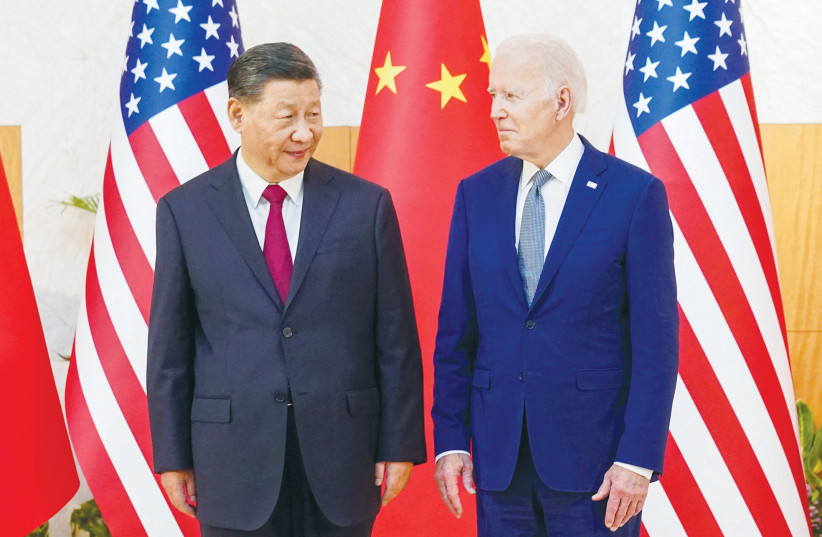The US could be hedging its bets on tensions with Russia by trying to cool down friction with China and Iran.
Russia is a close partner of China and Iran, as both challenge the US. China is ratcheting up tensions around Taiwan, while Iran is threatening US forces in Syria and in the Gulf.
For America, this presents the possibility of a multifront conflict or, in reality, a multifront arena of tensions where countries try to poke at US global hegemony to test the US’s response. The US can’t respond to everything; in fact, as the China “spy balloon” story illustrated, one crisis at a time is usually enough.
Therefore, recent reports illustrate the US may be shifting its posture a bit.
According to Axios, “Brett McGurk, President Biden’s senior Middle East adviser, took a low-profile trip to Oman earlier this month for talks with Omani officials on possible diplomatic outreach to Iran regarding its nuclear program, according to five US, Israeli and European officials.”
CIA director travels to China
Last week, CNN reported, “CIA Director Bill Burns secretly traveled to China last month, a US official told CNN Friday, amid efforts by the United States to reset relations with Beijing after a year of extremely heightened tensions.”

According to that report, a US official (Burns) “met with Chinese counterparts and emphasized the importance of maintaining open lines of communication in intelligence channels.”
Israel may be nonplussed by any US outreach to Iran, Washington-based news site Al-Monitor reported over the weekend.
“The Joint Comprehensive Plan of Action (JCPOA), or Iran nuclear deal, is ‘not on the agenda right now,’ according to the White House, but US-Iran diplomacy nonetheless continues indirectly through trusted intermediaries,” the report said.
Israel is alarmed by the potential of a US “back channel,” the report said.
On the one hand, reports indicate that there could be some kind of compromise. On the other hand, reports illustrate that Iran is increasing its threats to US forces in Syria and that Gulf tensions are growing.
The US also appears to be concerned about Iran’s claims to want a naval partnership with the Gulf states. The UAE had left the US-led CMF, a maritime coalition of 34 countries, a report last week said.
Meanwhile, any US initiative with China also faces hurdles. China defended buzzing an American warship, AP reported. The US had warned China against its behavior, the Financial Times reported.
If any work on military dialogue or de-escalating tensions is not progressing, then how can the US work things out with Beijing?
It may be that the source of tensions is too large, and too much water has flowed under the bridge. On the other side of the coin, however, the US must make these attempts due to the prospect of facing new Iranian threats in Syria and clashes somewhere in Asia. In addition, the need to fund the war in Ukraine could overstretch the US. Therefore, countries such as Israel and other US allies are watching closely.
Washington’s messaging on all these cases does not always indicate clearly what US policy actually is. As a US election is looming next year, Washington’s room to maneuver may become narrower.
This is important within the context of the next moves regarding Iran and China, and it could affect the Middle East.
